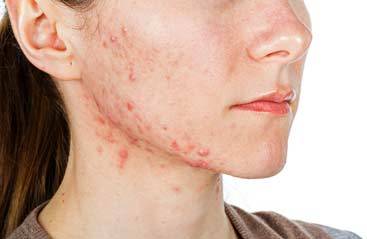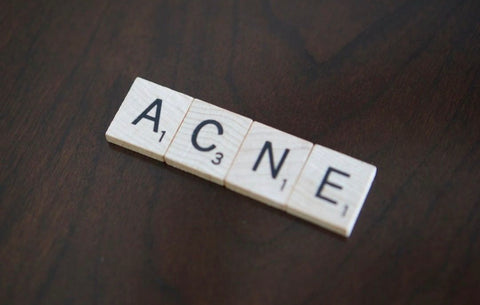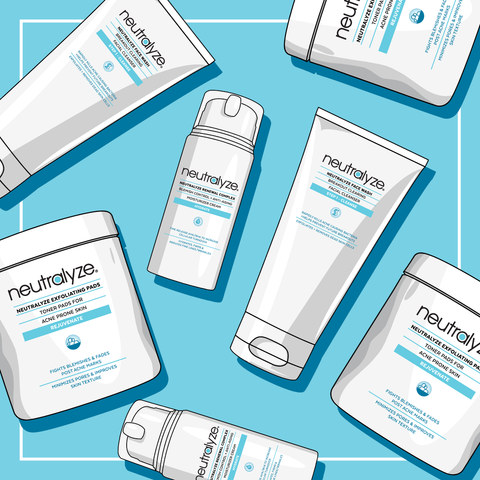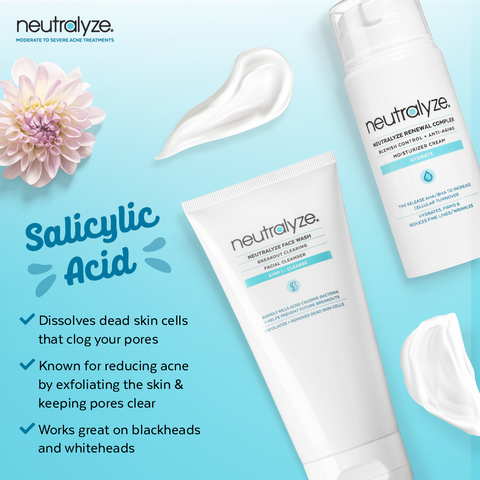The Best Face Wash for Cystic Acne

Aside from being unsightly and painful, large painful zits can affect self-esteem. Sometimes they make you want to hide under a rock until they all completely disappear. However, cystic acne—those large red pimples—don’t always vanish on their own. You need to find the right treatment for them.
With so many products claiming to be the best one, it can be daunting to choose which face wash for cystic acne is truly effective. Before we find the best solution, we must understand the root of the problem first.
What Is Cystic Acne?
Cystic acne is a type of acne that develops when nodules or sebaceous cysts form deep under the skin. The cysts are much larger than pimples and papules in regular acne. They’re characterized by pus-filled red bumps that are painful to the touch. Due to their size and appearance, it’s impossible not to notice them on a person’s face. Also, they can develop on other parts of the body, including the neck, chest, back, arms, shoulders, and behind the ears.
Cystic acne is considered the most serious type of acne, as the cysts sometimes take months to disappear. While anyone can develop cystic acne, it’s more common in people with oily skin and with hormonal imbalances. Teens and women are also more prone to having this type of acne.
What Causes Cystic Acne?
Cystic acne develops when bacteria, sebum, and dead skin cells get trapped in the pores, infecting the layer of the skin beneath the surface. However, there are underlying factors that can cause this condition, so it isn’t merely about maintaining proper hygiene.
Bacteria & Oil Buildup
Even with proper skincare and regular cleansing, bacteria and oil can still build up under the skin surface. Environmental factors, makeup, and other skincare products can cause buildup. Wearing tight clothing can also trap sweat and oil.
Diet
While the role of certain foods as a potential acne trigger is contentious, there have been studies that indicate their impact on acne formation. One recent study shows that consumption of fatty and sugary products appears to be associated with adult acne.
Hormonal Changes
Hormonal fluctuations during menstruation, pregnancy, and menopause can trigger cystic acne. Medical conditions, such as polycystic ovarian syndrome (PCOS), may also cause flare-ups.
Genetics
Some people are just naturally predisposed to cystic acne, and genes are to be blamed. People who have a parent who struggled with cystic acne have an increased risk of developing the same condition. While the genetic susceptibility to developing acne is unavoidable, it can be controlled with proper care.
Understanding which of these factors contribute to your cystic acne flare-ups can help you and your dermatologist figure out the best treatment plan for you.
What Is the Best Cleanser for Cystic Acne?
For mild breakouts, there are over-the-counter facial cleansers that may be sufficient enough to alleviate symptoms and prevent major flare-ups. For more severe ones, specific medication may be prescribed by your doctor.
While every cleanser has its unique formulation, there are some ingredients that are commonly used for treating cystic acne. Check for these ingredients when choosing a facial wash.
Salicylic acid
Salicylic acid is a beta hydroxy acid (BHA) that is commonly used in skincare products for acne treatment. It helps remove excess oil and dead skin cells, effectively clearing blocked pores. It can also help reduce redness and swelling. Most products contain salicylic acid with concentrations ranging from 0.5% to 6%. Higher concentrations of 2% and up may be required for cystic acne, but it still depends on your skin type. Salicylic acid tends to dry the skin, so it must be used with care.
Benzoyl peroxide
Benzoyl peroxide is usually used in ointments, creams, or gels for spot treatments. But there are also cleansers that incorporate it in their formulation to aid in exfoliating the skin and killing bacteria. Because it also works well in reducing inflammation, it can help treat cystic acne.
Glycolic acid
Glycolic acid is an alpha hydroxy acid (AHA) used for various skincare problems. It exfoliates the skin to make it appear smoother and create an even skin tone. Unlike salicylic acid and benzoyl peroxide, it’s non-drying and actually helps retain moisture. However, it’s not suitable for all skin types and may cause irritations on sensitive skin.
Mandelic acid
Like glycolic acid, mandelic acid is also an AHA. However, it’s gentler and more suitable for a wider range of skin types. Its molecules are larger than other AHAs, so they’re slowly absorbed into the skin. Due to their slow absorption, they’re less likely to cause skin irritations. Moreover, mandelic acid has antibacterial properties that make them more effective for cystic acne.
These are just some of the ingredients you should check when buying a facial cleanser for cystic acne. You may need to try several products to find the one that’s most effective for you. The effect may not always be immediately noticeable until after a couple of months of consistent use. But do stop immediately if you experience skin irritations or any adverse effects. For severe cystic acne, it’s advisable to consult a doctor who can assess your skin condition and suggest the most appropriate treatment for it.
Tips for Preventing Cystic Acne
Aside from finding the best face wash for cystic acne, there are a few other ways that may help prevent flare-ups.
- Whatever cleanser you use, make sure to cleanse gently but thoroughly. Use your fingertips or a soft washcloth instead of rough pads or scrubs.
- Gently massage the cleanser on your face for 10 to 20 seconds before rinsing it completely. This enables the ingredients in the cleanser to penetrate the skin without irritating it.
- Don’t use antibacterial hand wash or body soap on your face. These are not formulated for facial skin and may cause more irritations.
- After washing, use a hydrating toner for dry skin or an astringent for oily skin. Opt for alcohol-free ones that are non-drying and non-irritating.
- Apply oil-free and non-comedogenic moisturizing gel or lotion after the toner has completely dried.
- Always apply non-comedogenic sun protection before heading out during the day. Acne treatment products heighten photosensitivity and make your skin prone to sun damage.
- Never pick on your skin or pop a zit. Aside from causing scarring, it makes your skin more susceptible to bacteria.
- Avoid using so-called homemade remedies like putting toothpaste, honey, or sugar on your pimples. Instead of fighting cystic acne, these may aggravate it by irritating and clogging your pores.
- Monitor your food intake and take note of foods that trigger cystic acne flare-ups. Sugar and high-glycemic food tend to worsen acne.
- Live a healthy lifestyle by maintaining a healthy diet, exercising regularly, and avoiding smoking and drinking.
Be Consistent with Your Skincare Regimen
There’s no cookie-cutter solution to any type of acne. Each one depends on a person’s skin type, health condition, environment, and other distinctive factors. So the process of finding the best cleanser for cystic acne is different for each person. You may need to try several products before you find the most effective one for your skin. There may also be times when a product you’ve been using for many years stops being effective due to changes in your health or environment. Whatever the case may be, what’s important is that you maintain consistency and commit to caring for your skin the best way you can.


